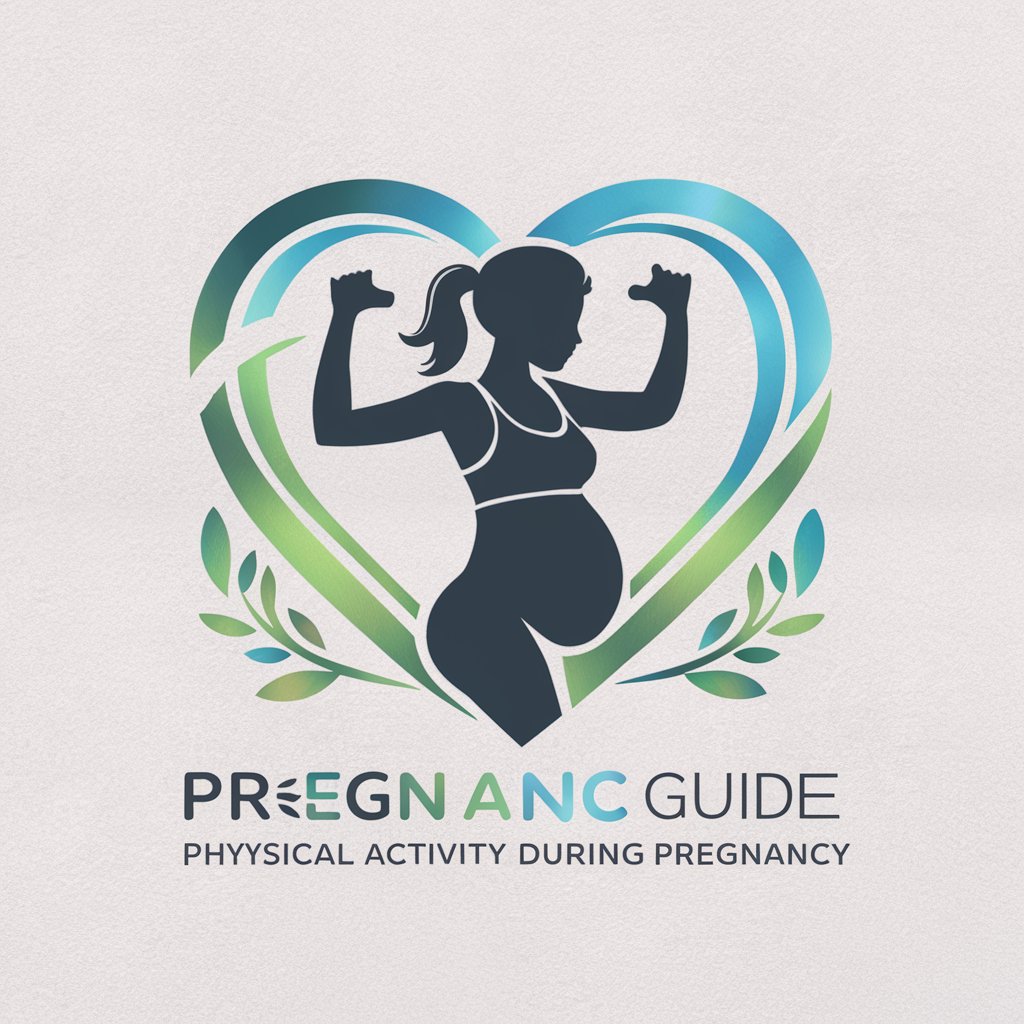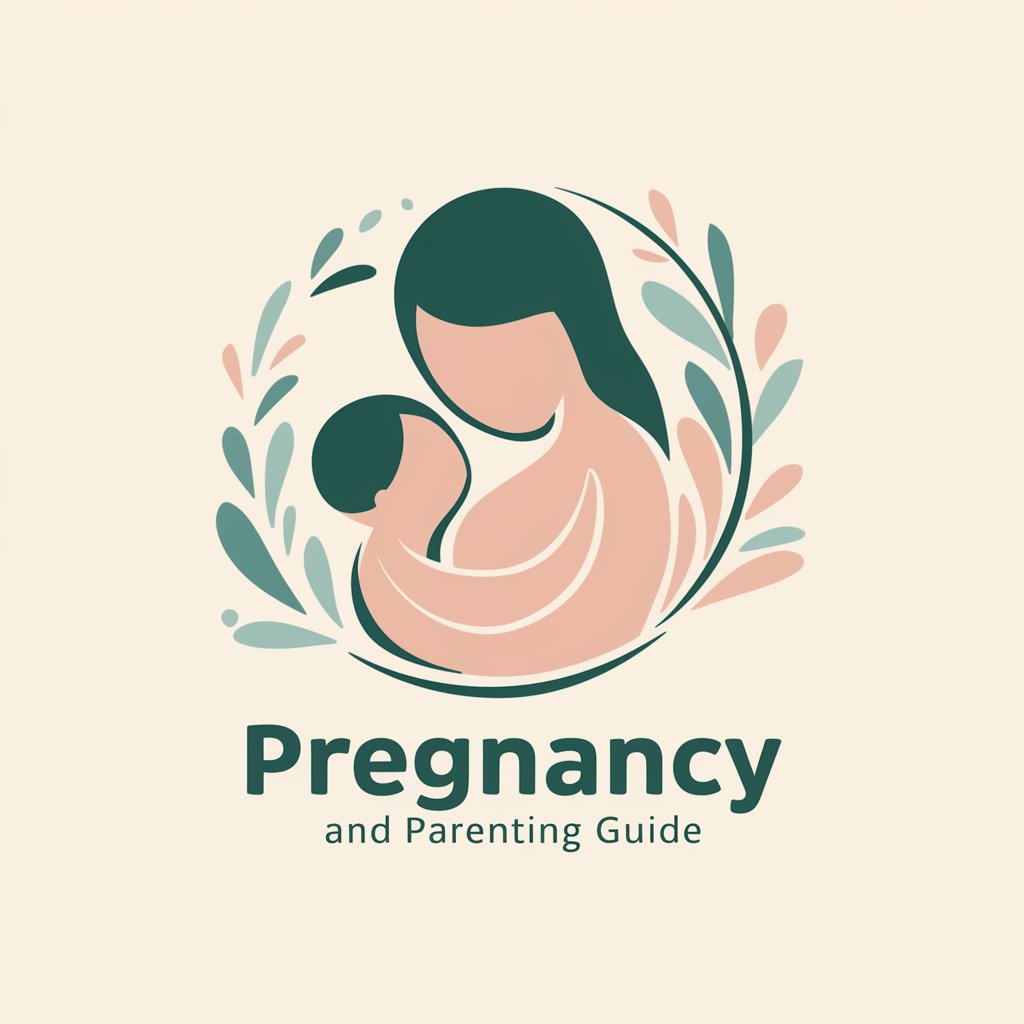
Guía de Actividad Física Durante el Embarazo - Pregnancy Fitness Guidance

Welcome to your guide on pregnancy fitness!
Empowering prenatal wellness with AI-driven fitness advice
Design a logo that represents...
Create a visual identity for a guide on...
Imagine a logo that combines...
Generate a logo that symbolizes...
Get Embed Code
Introduction to Guía de Actividad Física Durante el Embarazo
Guía de Actividad Física Durante el Embarazo, developed with partial funding from the Universidad Politécnica de Madrid, Instituto de las Mujeres, and Consejo Superior de Deportes, is designed to provide evidence-based recommendations for physical activity during pregnancy. Historically, the lack of scientific studies led to a variety of recommendations, often based on cultural, social, or religious considerations rather than evidence, typically advising rest. Nowadays, this approach is deemed inadvisable, with current evidence highlighting the fundamental role of physical activity in human well-being, making it crucial to provide safe and basic recommendations for pregnant individuals. These guidelines aim to support healthcare professionals, fitness coaches, and pregnant individuals in making informed decisions regarding physical activity during pregnancy, thereby enhancing clinical practice and improving the well-being of both the mother and fetus. Powered by ChatGPT-4o。

Main Functions of Guía de Actividad Física Durante el Embarazo
Evidence-based Recommendations
Example
Advising 150 minutes of moderate-intensity physical activity per week for pregnant women without medical contraindications.
Scenario
A healthcare professional advising a pregnant patient on safe physical activity levels to maintain during her pregnancy.
Identification of Contraindications
Example
Highlighting absolute and relative contraindications to moderate/intense physical activity during pregnancy, such as pre-eclampsia or uncontrolled diabetes.
Scenario
A fitness coach designing a workout program for a pregnant client, ensuring that the exercises are safe and take into account any potential contraindications.
Symptoms Monitoring
Example
Guiding pregnant individuals to stop physical activity if experiencing symptoms like dizziness, vaginal bleeding, or regular painful uterine contractions.
Scenario
A pregnant individual participating in a fitness class, knowing which symptoms to monitor that would necessitate stopping exercise and consulting a healthcare provider.
Ideal Users of Guía de Actividad Física Durante el Embarazo
Healthcare Professionals
Obstetricians, midwives, and general practitioners can utilize the guidelines to provide evidence-based advice to pregnant patients regarding safe levels of physical activity, contraindications, and managing symptoms related to exercise.
Pregnant Individuals
Women undergoing a healthy pregnancy can use the guide to understand safe exercise practices, recognize when to modify or stop exercising, and maintain physical well-being during pregnancy.
Fitness Coaches
Fitness professionals working with pregnant clients can apply the recommendations to tailor workout programs that are safe, effective, and accommodate the unique needs of pregnant individuals.

How to Utilize the Guía de Actividad Física Durante el Embarazo
Start with a free trial
Begin your journey by exploring yeschat.ai for a hassle-free trial experience, requiring no sign-up or ChatGPT Plus subscription.
Identify your role
Determine if you're a healthcare professional, pregnant individual, or fitness coach to receive tailored guidance.
Review the guide
Familiarize yourself with the guide's structure, focusing on recommendations, contraindications, and activity modifications.
Implement the advice
Apply the guide's recommendations in your or your client's physical activity regimen during pregnancy, considering safety and well-being.
Seek clarity
If any part of the guide is unclear, or if you encounter unique situations, don't hesitate to seek further clarification for accurate application.
Try other advanced and practical GPTs
Durari GPT 🌍📖🧙♂️🔮🌟✨
Discover the magic of Durari with AI

Rédacteur en marketing durable
Powering Sustainable Marketing Content with AI

Consultant en Stratégies de Durabilité B2B
Empowering businesses with AI-driven sustainability strategies

Hypercubist Artisan
Transforming ideas into hypercubist realities.

Cornell Note Organizer
Elevate Your Notes with AI

The Unofficial Hamish & Andy Lost Touch Detector
Discover your commonality with AI.

Stratega Tecnologico
Optimizing Chrome Plating with AI

Pietra Dura Art
Reviving ancient artistry with AI

Plantilla Shopi de Rojant Media
Elevate Your Shopify Experience with AI-Powered Design

Shigoro Shogi Master
Master Shogi with AI-Powered Insights

ちゃんとGPTS 岡山弁編
Experience Okayama dialect with AI

Prompt Quiz
Visualize and Learn Japanese the AI Way

Detailed Q&A about Guía de Actividad Física Durante el Embarazo
What types of physical activities are recommended during pregnancy?
The guide recommends at least 150 minutes of moderate-intensity physical activity per week, focusing on aerobic endurance, mild strength training, balance, motor coordination, and flexibility.
Are there any contraindications for physical activity during pregnancy?
Yes, activities are contraindicated for women with absolute conditions like severe cardiovascular or respiratory diseases, placenta previa after 26 weeks, and preterm labor risks, among others. Relative contraindications require professional assessment.
How can physical activity impact pregnancy outcomes?
Regular, moderate physical activity during pregnancy can improve maternal and fetal outcomes, reducing the risk of gestational diabetes, hypertension, excessive weight gain, and possibly improving mental well-being and quality of life.
What precautions should be taken when exercising during pregnancy?
Pregnant individuals should avoid high-impact activities, maintain proper hydration, avoid overheating, and listen to their body, stopping exercise if experiencing discomfort, dizziness, or other concerning symptoms.
Can physical activity during pregnancy improve postnatal recovery?
Yes, engaging in recommended physical activity during pregnancy can aid in postnatal recovery, potentially leading to quicker physical recovery, reduced risk of postpartum depression, and improved overall well-being.





